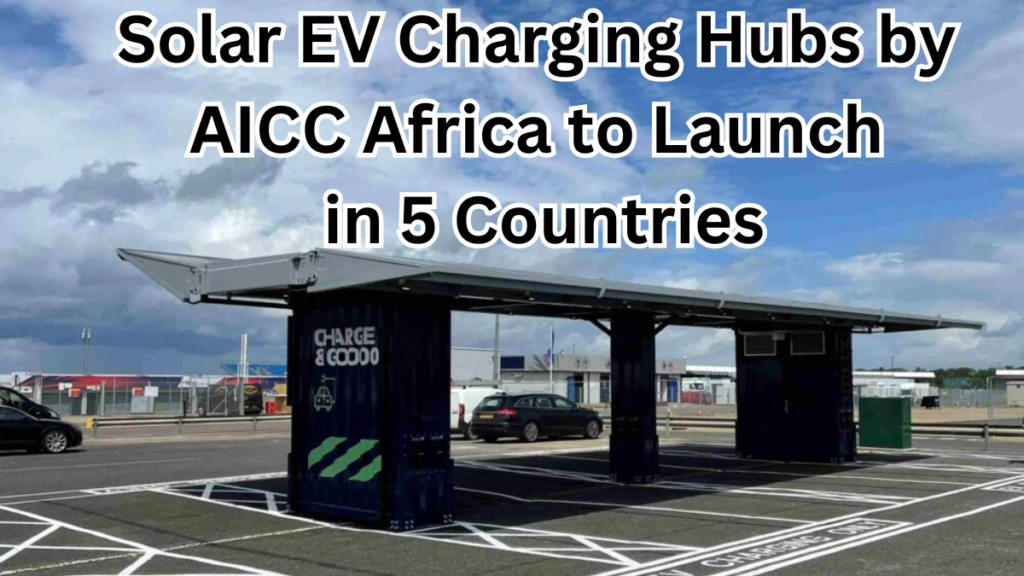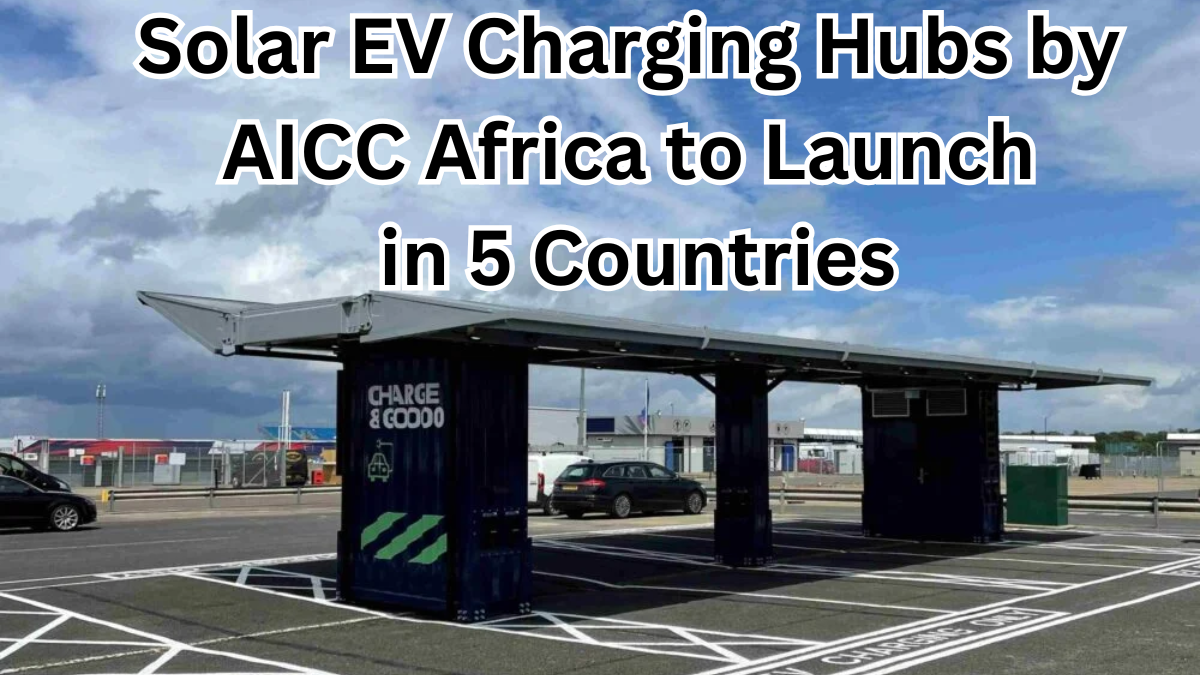A major green revolution is on the horizon. AICC Africa is gearing up to launch solar charging hubs in Africa, offering renewable mobility stations across five key countries by 2025. This move is set to drive sustainable transport, reduce carbon emissions, and make EV charging more accessible in the region.
Let’s dive deeper into this exciting initiative.

AICC Africa’s Green Mobility Mission
AICC Africa is taking significant strides to transform urban transportation with solar charging hubs in Africa. These hubs will not only support the growing number of electric vehicles (EVs) but also promote renewable mobility stations that harness clean, solar energy.
Key Highlights:
-
Five Countries Targeted: The project will be rolled out in Nigeria, Kenya, South Africa, Ghana, and Egypt.
-
Focus on EV Growth: AICC’s solar EV hubs aim to make electric vehicle adoption smoother and more convenient.
-
Sustainable Impact: The hubs will help cut down on fossil fuel dependence and reduce urban pollution.
Where Will the Solar Charging Hubs Be Set Up?
Here’s a quick look at the countries and the planned hub locations:
| Country | Planned Locations |
|---|---|
| Nigeria | Lagos, Abuja, Port Harcourt |
| Kenya | Nairobi, Mombasa |
| South Africa | Johannesburg, Cape Town, Durban |
| Ghana | Accra, Kumasi |
| Egypt | Cairo, Alexandria |
These solar charging hubs in Africa are strategically positioned in urban centers to maximize accessibility for EV users.
Why These Solar EV Charging Hubs Matter
Benefits of Solar Charging Hubs:
-
Eco-Friendly Power: Powered entirely by solar energy through renewable mobility stations.
-
Cost Savings: Solar energy reduces long-term charging costs for EV owners.
-
Energy Independence: Less reliance on traditional energy grids.
-
Reduced Carbon Footprint: Supports Africa’s climate goals by cutting emissions.
Boost to Local Economies:
-
Creation of green jobs.
-
Development of sustainable infrastructure.
-
Encouragement for local EV manufacturing and sales.
Timeline: When Will the Solar Charging Hubs Go Live?
| Milestone | Timeline |
|---|---|
| Project Announcement | June 2025 |
| Construction Start | September 2025 |
| Pilot Hub Launch | December 2025 |
| Full Rollout | Late 2025 |
By late 2025, solar charging hubs in Africa will be operational, actively contributing to renewable mobility stations across the continent.
AICC Africa’s Vision for Renewable Mobility
AICC Africa isn’t just building infrastructure—it’s shaping the future of green transportation. Their renewable mobility stations will:
-
Promote widespread EV use.
-
Make clean energy charging affordable.
-
Position Africa as a leader in sustainable urban mobility.
FAQs
1. What are solar charging hubs, and why are they important for Africa?
Solar charging hubs are EV charging stations powered by solar energy. They’re crucial for Africa as they offer clean, affordable, and reliable energy, especially in areas with limited power grid access.
2. Which countries will first benefit from these solar charging hubs in Africa?
Nigeria, Kenya, South Africa, Ghana, and Egypt will be the first to experience the rollout of AICC Africa’s renewable mobility stations by 2025.
3. How do solar charging hubs support renewable mobility stations?
Solar charging hubs are a core part of renewable mobility stations by using green energy sources to power electric vehicles, reducing environmental impact and dependency on fossil fuels.
4. Will these solar charging hubs be available to the public or only for commercial use?
The hubs will be available for both public and commercial use, encouraging EV adoption for daily commuters, businesses, and local transport services.
Click here to learn more
Sachin is a dedicated writer specializing in education, career, and recruitment topics, delivering clear and actionable insights to empower readers.
